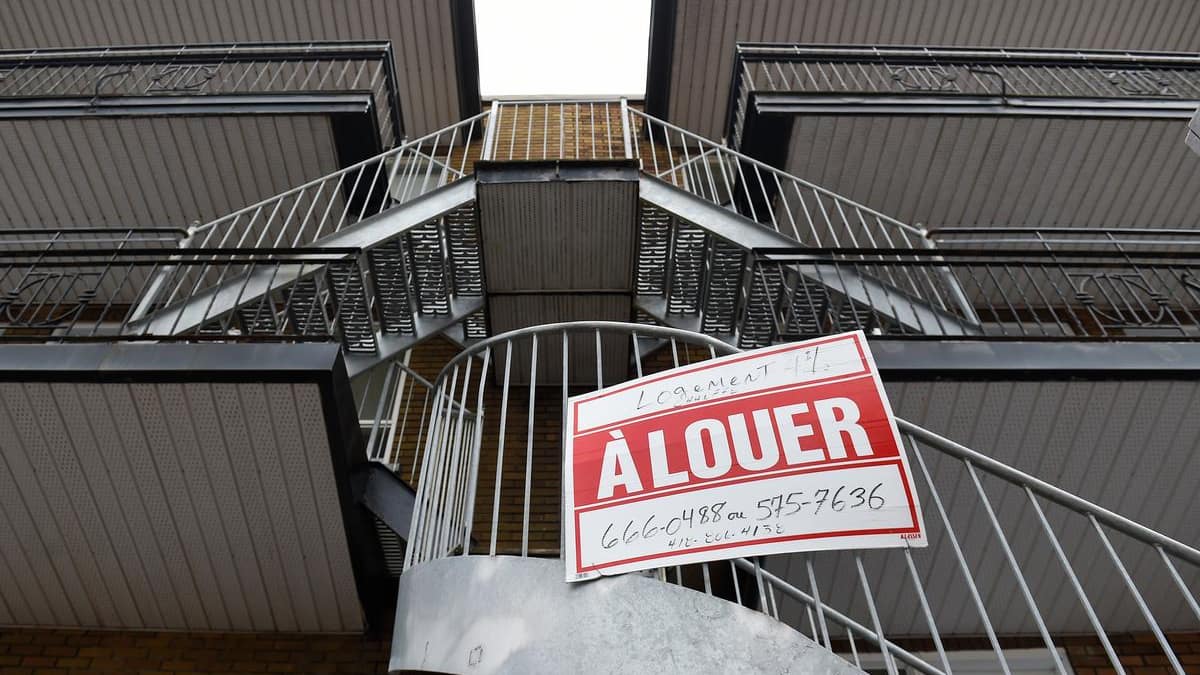The Housing Administration Court (TAL) on Tuesday announced the percentages that make it possible to calculate the rent increase for leases from April 2nd. Here’s what you need to know.
• Also read: Unjustified rent increase or not? Here are six things you need to know
• Also read: Here are four criteria a landlord must meet before repossessing a home
Every year, the TAL offers this tool to the owners so that they can accurately calculate the increase attributable to the tenant based on several criteria related to the cost of the building such as maintenance costs, management costs and capital expenditures.
Note that as a renter it can be difficult to complete as it requires a lot of information about the building such as tax and insurance premiums.
Here are the average base raise estimates published by the TAL:
- Unheated accommodation: 2.3%
- Electrically heated accommodation: 2.8%
*This increase may exceed 2.9% for an unheated apartment if we take into account the increase in municipal taxes. Adding larger works can increase the increase 4.5%.
For example, if we calculate a monthly rent of 1,000 euros, the landlord would be entitled to demand a basic increase of $23. However, this amount may increase $29 if we estimate a 5% increase in local taxes.
For comparison, for 2022, the TAL proposed an average increase of 1.28% for unheated and 1.34% for electrically heated accommodation. Inflation obliges, this rate for unheated apartments proposed by the TAL is therefore 56% higher than in the previous year.
Can the landlord increase the rent at his own discretion?
In Quebec, a landlord is free to propose a rent increase of their choosing. Contrary to popular belief, there is no “ceiling” for rent increases. Quebec Premier François Legault was clearly wrong on this issue in 2022: He erroneously stated that a “Quebec law prevents landlords from raising their rents by more than 1.28% for 2022.”
However, if the tenant considers the increase to be excessive and inexplicable, he is entitled to refuse it. The landlord then has one month to open a rent assessment file with the TAL if he cannot come to an agreement with the tenant beforehand.
Some exceptions apply, especially if the tenant lives in an apartment in a building that was built less than five years ago.
• Also read: According to one body, the number of “evictions” in the regions has exploded by 508% in a year
When can the landlord increase the rent?
The rent cannot be checked during a tenancy. If he sends a renewal notice, he can make changes, including a rent increase.
Important to know:
- From a rental period of 12 months: The notice must be given three to six months before the end of the rental period. For example, if the lease ends on June 30, 2023, the landlord must send their notice of termination between January 1 and March 31, 2023.
- For a rental period of less than 12 months: the notice must be given one to two months before the end of the rental period. If the tenancy ends on June 30th, 2023, the termination must take place between April 30th and April 30th. and May 31, 2023.
- In the case of unlimited rental: The notice must be given one to two months before the requested change comes into effect. For a lease that ends on June 30, 2023, the landlord must therefore send you the notice of termination between April 30 and May 31, 2023.
• Also read: Low-income renters could get $500 from the federal government
What must this notice contain in order to comply with the law?
In the notification, the owner must provide the following information:
- The amount of the new rent or the increase compared to the current one.
- The planned rental period.
- The period given to the tenant to refuse the proposed rent increase, which is one month after receipt of the notice. If you do not respond within this period, the landlord is entitled to assume that you accept the increase.
Warning: If the notice only gives you two choices – either accept the increase or leave the accommodation – it is not in accordance with the law.
• Also read: 8 Products Experts Say You Shouldn’t Buy From Costco
How can I appeal my rent increase?
If a tenant objects to a rent increase, he must send a declaration of refusal to the landlord no later than one month after receiving notification of the change. Ideally by registered post to provide proof of postage.
Owners and tenants can negotiate an amicable settlement after this refusal. If an agreement is not possible, the owner must contact the TAL directly within one month of the rejection. In this case, the court sets the rental price itself.
Even if the rent increase is rejected by the tenant, they keep their lease and their apartment during the negotiation process.
To learn more about the rights of tenants and landlords, you can consult the Éducaloi website.

